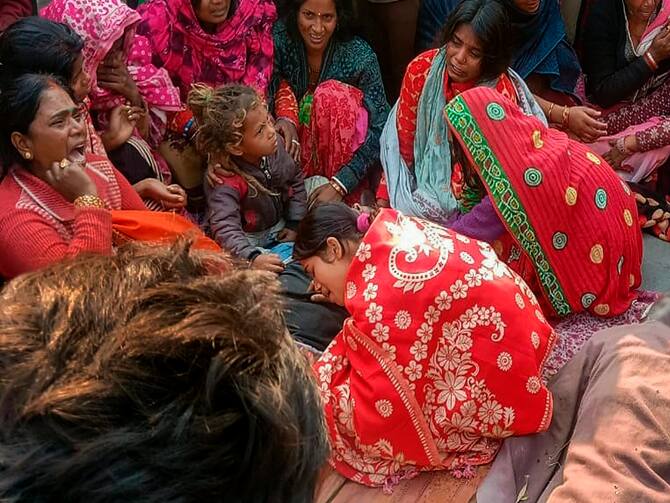Hooch Tragedy
HOOCH TRAGEDY
Author - Bharvi H. Girkar 2126.
What is Hooch?
Hooch is a commonly used term for poor quality alcohol, derived from Hoochinoo, a native Alaskan tribe that was known to produce very strong liquor. Unlike branded liquor which is produced in factories with sophisticated equipment and rigorous quality control, hooch is made in more crude settings without any quality checks.
Hooch is a cheap, illegal alcohol produced mainly by the locals because they can't afford legal alcohol. This alcohol was banned by the government but still its consumption is made by people which is now leading to deaths.
In the recent years it can be seen that the number of people dying due to consumption of alcohol especially due to hooch has been increased. The WHO estimates that 1300 deaths from 2001 -2012 are due to this menace that has blighted my country for years.
The official death toll from the latest hooch tragedy in Bihar has mounted to 38. Critics have claimed that one of the reasons behind the tragedy is the state’s prohibition policy, with an official ban on alcohol leading to a thriving underground economy.
Then who consumes this alcohol?
Marginalised communities (geographically isolated, minorities, tribes, economically and socially deprived communities) are very severely affected by harm from alcohol consumption including illicit and spurious liquor.
India has a long history of banning alcohol, with prohibition a part of the Directive Principles of State Policy in the Constitution and also among the key Gandhian principles.While the Constitution sets prohibition on alcohol as a goal, for most states, it is very difficult to declare a ban on alcohol. This is primarily because liquor revenues are not easy to ignore and have consistently contributed a large share of state governments’ revenue. In these areas alcohol is introduced in to the system for quick profits, exploiting the vulnerability
The alcohol industry does not care for those people and their fate, obviously. The alcohol industry simply doesn’t want to pay taxes for their harmful products – they want to rake in profits and leave us in India with the costs for the harm their products cause. The sustainable and humane way to prevent hooch tragedies is to address corruption of local officials, improve law enforcement, increase social protection for marginalised groups and help people with alcohol use disorders – no matter where they live – to access treatment. It’s no silver bullet solution as Big Alcohol proposes, but it’s evidence-based and morally right. The sustainable and humane way to help hooch tragedies is to address corruption of original officers, ameliorate law enforcement, increase social protection for marginalised groups and help people with alcohol use diseases – no matter where they live – to pierce treatment.
The above bar graph shows the number of people who died due to consumption of alcohol from the year 2008-2013. Over the years the number of people who died due to consumption of alcohol has increased as well as decreased in some states. We can see that in states like Karnataka, west Bengal and Gujarat the no. of deaths is significantly higher compared to Uttar Pradesh and Odisha.
As aggressive as ever in its pursuit of giant profits in India, the alcohol industry makes a point in every such situation for its benefit – it routinely claims that it is hooch tragedies occur due to heavy taxation imposed on “their alcohol products”. The argument is: the poor cannot afford legal alcohol and so are turning to cheap, illicit liquor.
But in fact, alcohol is intoxicating and the person who get addicted would buy it at any cost. We cannot blame high taxation. The law enforcement itself is faulty. Corrupted officials play their part in these tragedies. Uneducated and often illiterate, poor, socially underprivileged and marginalised people, who often already got addicted to alcohol, are exploited for quick profits. In such contexts these heart-wrenching tragedies recur often. But for the alcohol industry to make these claims about alcohol taxation being to blame is not only incorrect, but also immoral. Families have lost loved ones. Communities miss members. Already vulnerable people have become even more exposed to harms.

.png)
Appreciate, Its Well Researched And Informative.
ReplyDelete